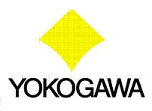 Chevron’s Ghent facility in Belgium blends Texaco branded lubricants. The plant has over fifty vessels and storage tanks, and currently produces more than fifty formulations of lubricants and viscosity index improvers by means of blending and additives. Product quality is rigorously controlled. Approximately 1,000 tests are performed weekly at the plant’s analysis laboratory. More than thirty truck shipments are made every week. The plant previously was controlled by a Unix-based Foxboro I/A series distributed control system (DCS) installed in 1997. In 2010, Chevron decided to migrate to a new platform to take advantage of new functionalities, and ensure it had a system commensurate with its strong value proposition of advanced technology.
Chevron’s Ghent facility in Belgium blends Texaco branded lubricants. The plant has over fifty vessels and storage tanks, and currently produces more than fifty formulations of lubricants and viscosity index improvers by means of blending and additives. Product quality is rigorously controlled. Approximately 1,000 tests are performed weekly at the plant’s analysis laboratory. More than thirty truck shipments are made every week. The plant previously was controlled by a Unix-based Foxboro I/A series distributed control system (DCS) installed in 1997. In 2010, Chevron decided to migrate to a new platform to take advantage of new functionalities, and ensure it had a system commensurate with its strong value proposition of advanced technology.
Careful project investigation and planning allowed Yokogawa to migrate the legacy DCS at Chevron’s Ghent facility to a state-of-the-art CENTUM DCS platform. The transition process went smoothly and efficiently, overcoming a number of complex technical challenges, which included emulating complex level 3 functionality, managing capital constraints, and solving an unforeseen interfacing issue with the plant’s weighing hardware.
Nike
 Case Study by Advantech: While the world's shipping industry puts emphasis on shipping safety, reliability, and economy, the requirement of ship equipment control is also getting higher. Ship control technology is developing toward the trend of integrated automation, which is achieved by a multi-functional integrated system including the cabin automation, navigation automation, machinery automation, and loading automation. Sub-control systems are based on ship type and degree of automation, including remote control host, cabin monitoring and alarm, power management, valve control, water-level telemetry, ballast control, and automatic navigation.
Case Study by Advantech: While the world's shipping industry puts emphasis on shipping safety, reliability, and economy, the requirement of ship equipment control is also getting higher. Ship control technology is developing toward the trend of integrated automation, which is achieved by a multi-functional integrated system including the cabin automation, navigation automation, machinery automation, and loading automation. Sub-control systems are based on ship type and degree of automation, including remote control host, cabin monitoring and alarm, power management, valve control, water-level telemetry, ballast control, and automatic navigation. HPCL-Mittal Energy Limited (HMEL) is a joint venture between Hindustan Petroleum Corporation Limited and Mittal Energy Investment Pte Ltd, a Lakshmi N Mittal company that is based in Singapore. HMEL has built and currently operates the Guru Gobind Singh refinery, which is located near Bathinda in India’s Punjab region. This new refinery has a production capacity of 9 million tons per annum (the equivalent of 180,000 bpd) and complies with the Euro IV emission norms. This is a zero bottom plant, with a very high Nelson Complexity Index. The refinery facilities include a polypropylene unit (PPU) that utilizes the Novolen® gas-phase polypropylene (PP) process and is capable of producing 440,000 tons per year of homo-polymer PP.
HPCL-Mittal Energy Limited (HMEL) is a joint venture between Hindustan Petroleum Corporation Limited and Mittal Energy Investment Pte Ltd, a Lakshmi N Mittal company that is based in Singapore. HMEL has built and currently operates the Guru Gobind Singh refinery, which is located near Bathinda in India’s Punjab region. This new refinery has a production capacity of 9 million tons per annum (the equivalent of 180,000 bpd) and complies with the Euro IV emission norms. This is a zero bottom plant, with a very high Nelson Complexity Index. The refinery facilities include a polypropylene unit (PPU) that utilizes the Novolen® gas-phase polypropylene (PP) process and is capable of producing 440,000 tons per year of homo-polymer PP. Case Study by Yokogawa: Samsung Petrochemical Co. Ltd. (SPCL), a major Korean petrochemical company, produces 700,000 tons per year of purified terephthalic acid (PTA) at its Daesan plant. PTA, a white powder substance that is produced by oxidizing and refining para-xylene, is a precursor to polyethylene terephthalate (PET), a polyester material that has excellent thermal resistance and wear resistance and is widely used as a substitute for natural cotton fibers and in film packaging, beverage bottles, tire cords, paints, adhesives, and other applications. As of 2010, global annual demand for PTA stood at 39 million tons, and is expected to continue growing by 7% a year until 2016. Growth is especially strong in Asia, particularly China and India.
Case Study by Yokogawa: Samsung Petrochemical Co. Ltd. (SPCL), a major Korean petrochemical company, produces 700,000 tons per year of purified terephthalic acid (PTA) at its Daesan plant. PTA, a white powder substance that is produced by oxidizing and refining para-xylene, is a precursor to polyethylene terephthalate (PET), a polyester material that has excellent thermal resistance and wear resistance and is widely used as a substitute for natural cotton fibers and in film packaging, beverage bottles, tire cords, paints, adhesives, and other applications. As of 2010, global annual demand for PTA stood at 39 million tons, and is expected to continue growing by 7% a year until 2016. Growth is especially strong in Asia, particularly China and India. Aboitiz Power Corporation is a holding company that was set up by the Aboitiz Group to oversee its investments in power generation, distribution, retail, and services. The company owns and operates several hydroelectric and geothermal power plants as well as a number of non-renewable power facilities throughout the Philippines. It also owns distribution utilities that are centered in high-growth areas in Luzon, Visayas, and Mindanao.
Aboitiz Power Corporation is a holding company that was set up by the Aboitiz Group to oversee its investments in power generation, distribution, retail, and services. The company owns and operates several hydroelectric and geothermal power plants as well as a number of non-renewable power facilities throughout the Philippines. It also owns distribution utilities that are centered in high-growth areas in Luzon, Visayas, and Mindanao.